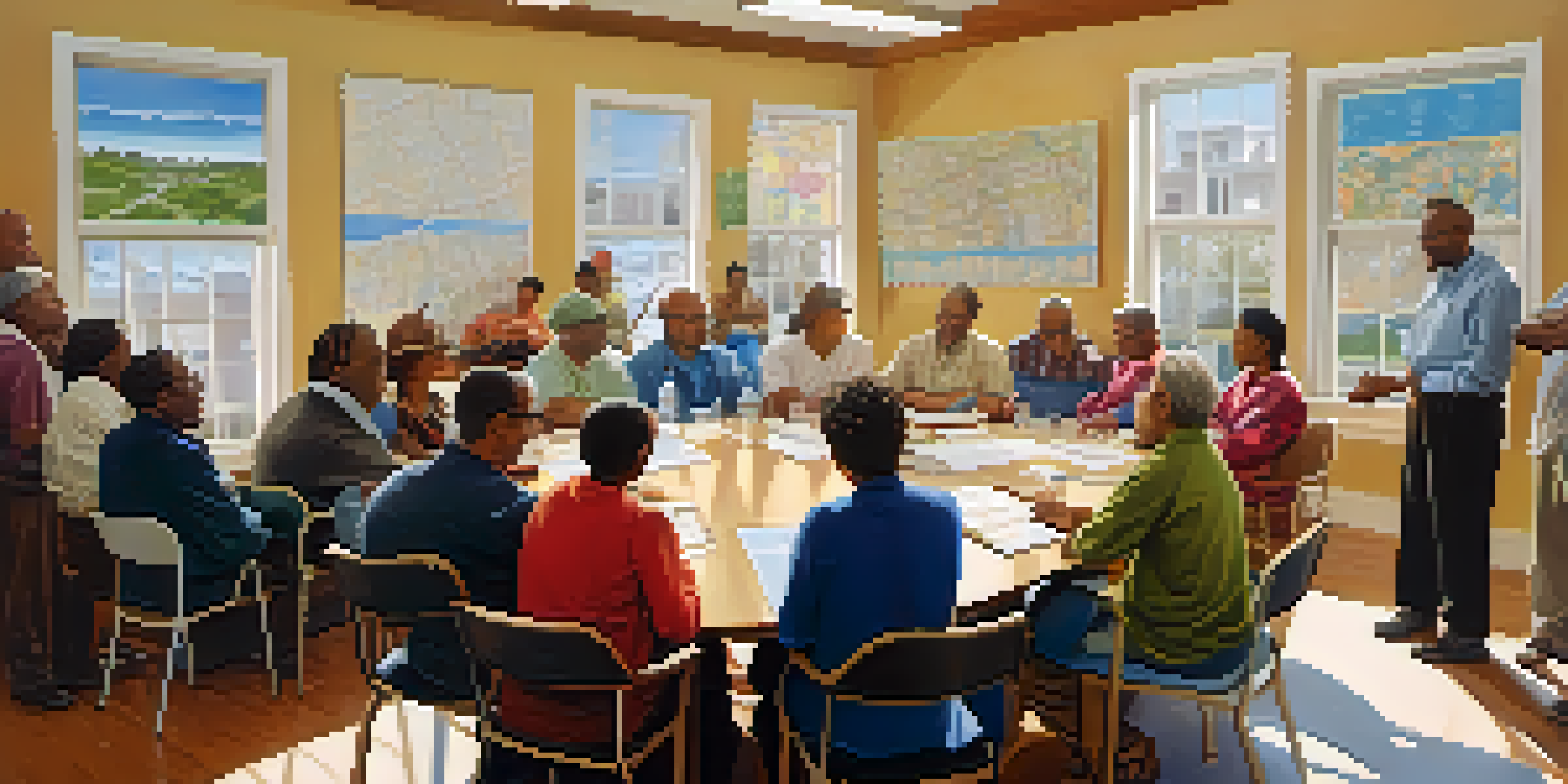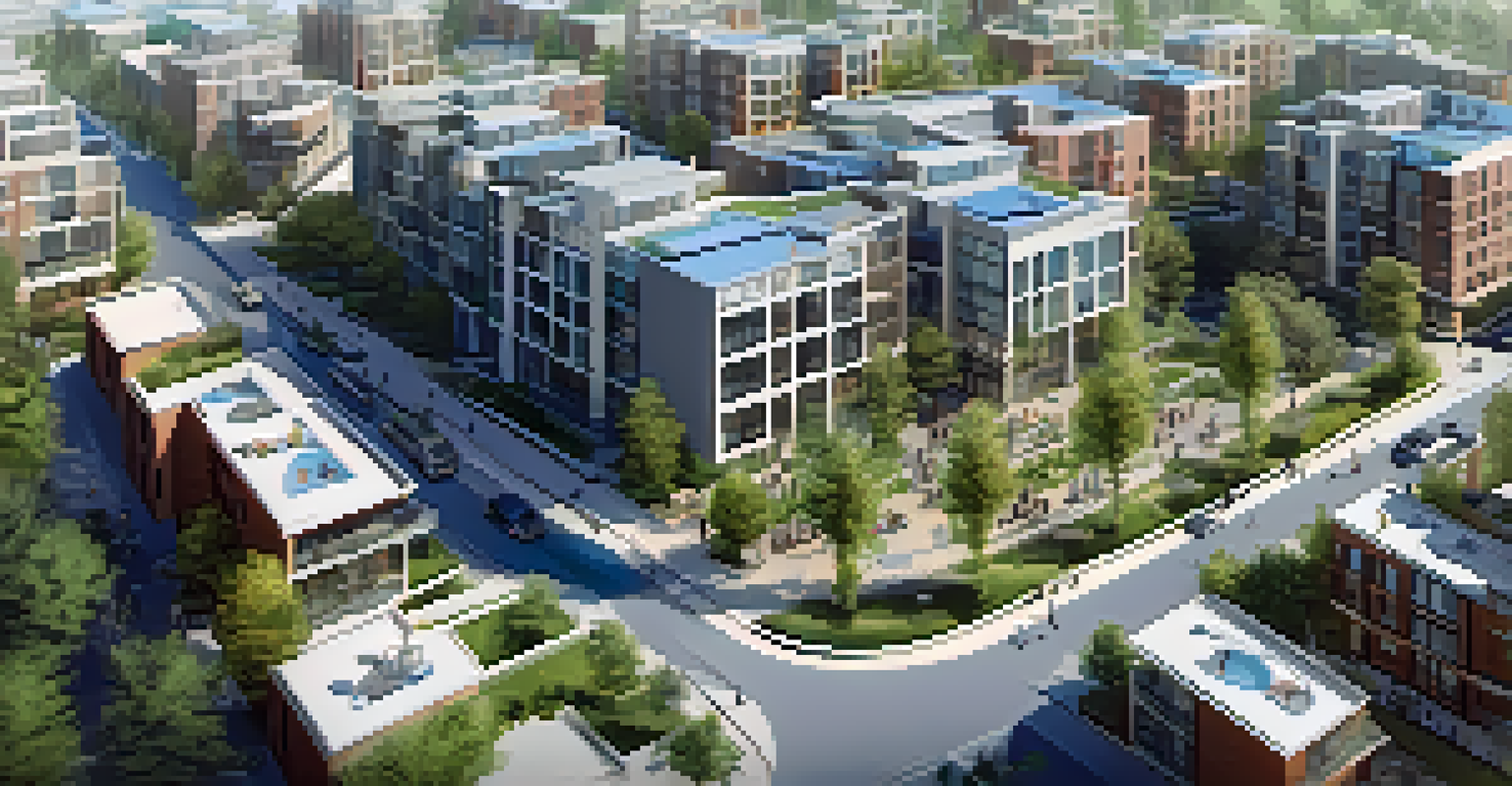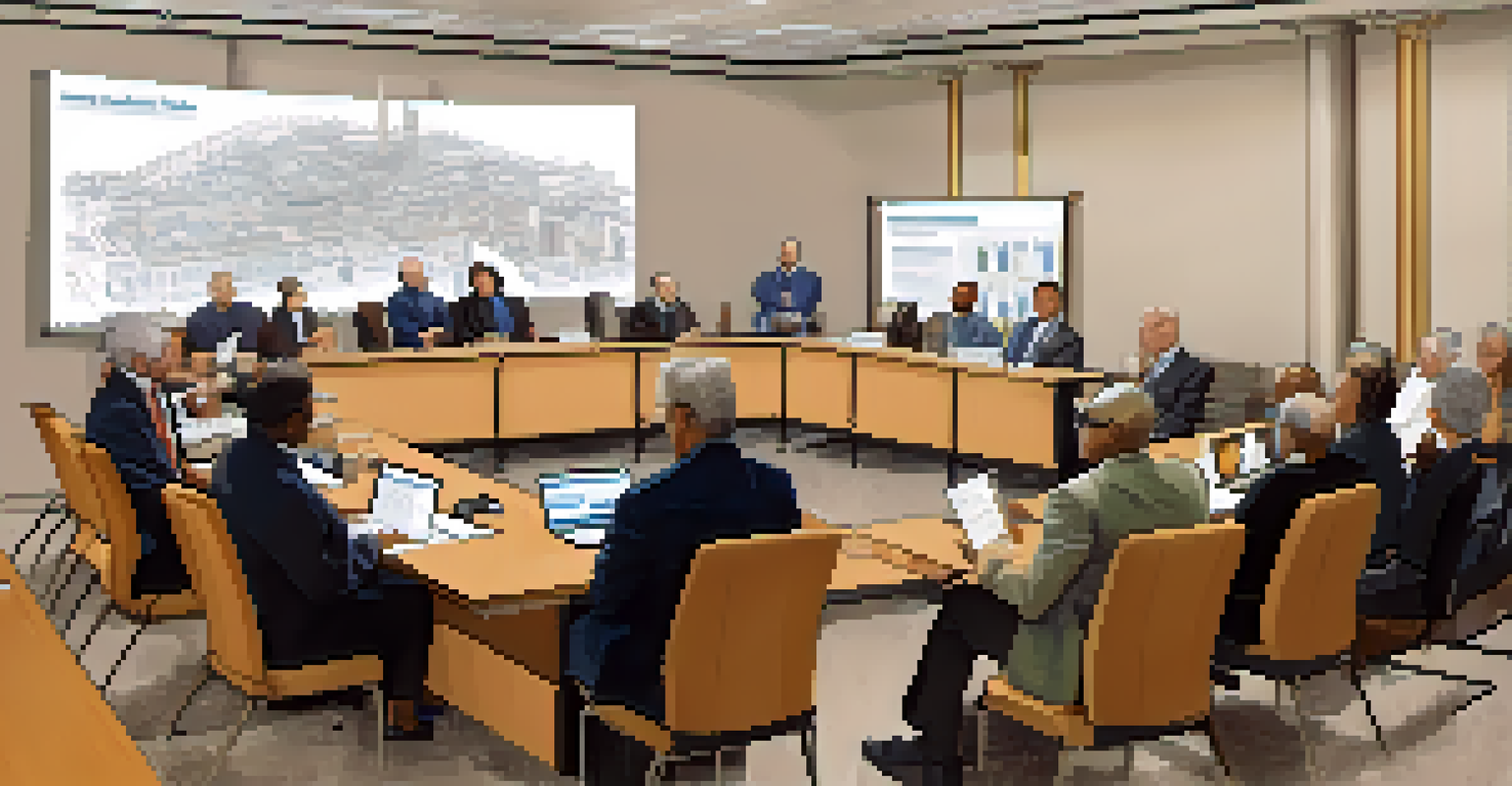The Role of Zoning Boards in Property Development

What are Zoning Boards and Their Purpose?
Zoning boards play a crucial role in local governance, primarily overseeing land use and development regulations. They ensure that property developments align with community plans and zoning laws, which are designed to promote orderly growth. Think of zoning boards as the referees in a game, ensuring that everyone plays by the rules to maintain fairness and community standards.
Zoning is not about prohibiting, but about guiding development in a manner that serves the community best.
Their purpose is not just to restrict but to balance various interests, including those of property developers, local residents, and environmental concerns. By evaluating applications for new developments, zoning boards help shape the character of neighborhoods, deciding what can be built and where. This decision-making process is vital for maintaining the quality of life in a community.
Moreover, zoning boards often serve as a bridge between the community and developers, facilitating dialogue and addressing public concerns. This communication helps ensure that new developments reflect the values and needs of local residents. In this way, zoning boards contribute to creating harmonious living environments.
The Zoning Approval Process Explained
The zoning approval process can seem daunting, but it's designed to be thorough and transparent. Typically, a developer submits a proposal to the zoning board, detailing the intended use of the property and how it complies with existing zoning laws. This initial step is crucial, as it sets the stage for further discussions and evaluations.

Once the proposal is submitted, the zoning board conducts public hearings to gather feedback from local residents and stakeholders. This step is essential, as it allows community members to voice their opinions and concerns about the proposed development. It’s not uncommon for these hearings to spark lively debates, reflecting the diverse interests within the community.
Zoning Boards Shape Community Growth
Zoning boards oversee land use to ensure developments align with community plans and promote orderly growth.
After considering the feedback, the zoning board will make a decision based on the proposal's alignment with zoning laws and community needs. They can approve, deny, or request modifications to the proposal. This process highlights the importance of collaboration between developers and the community, ensuring that developments are beneficial for all parties involved.
Key Responsibilities of Zoning Boards
Zoning boards have several key responsibilities that shape the development landscape. One of their primary duties is to interpret zoning laws and ensure compliance with local regulations. This involves reviewing plans, conducting site visits, and assessing how proposed developments fit within zoning classifications.
The best way to predict the future is to create it.
Additionally, zoning boards handle variance requests, which are exceptions to zoning regulations. When a developer wants to build something that doesn't quite fit the existing rules, they must apply for a variance. The board carefully evaluates these requests, considering factors such as community impact and the nature of the request before making a decision.
Another critical responsibility is the ability to amend zoning regulations. As communities evolve, zoning boards may recognize the need to adapt laws to better suit current conditions. This flexibility is essential for fostering sustainable development that meets the changing needs of the community.
Zoning Boards and Community Involvement
Community involvement is a cornerstone of the zoning board's function. By encouraging public participation in the zoning process, boards ensure that the voices of residents are heard and considered. This involvement can take many forms, from public hearings to informal meetings, allowing community members to engage directly with decision-makers.
The feedback gathered during these interactions plays a significant role in shaping development outcomes. When residents express their concerns or support, zoning boards take this input seriously, often influencing their decisions. This collaborative approach fosters a sense of ownership among community members regarding local development.
Community Engagement is Essential
Public participation in zoning processes allows local residents to voice their opinions, significantly influencing development outcomes.
Moreover, community involvement helps zoning boards maintain transparency and accountability. By actively engaging with residents, boards can build trust and demonstrate that they are responsive to the community's needs. This relationship is vital for creating developments that not only meet regulatory standards but also resonate with local residents.
Challenges Faced by Zoning Boards
Zoning boards often face a myriad of challenges that can complicate their decision-making processes. One significant challenge is balancing the interests of developers with those of residents, as these perspectives can sometimes clash. For instance, while a developer may propose a high-rise building for economic growth, residents might oppose it due to concerns about increased traffic or loss of neighborhood character.
Another challenge is keeping up with changing regulations and community needs. As cities grow and evolve, zoning laws must adapt to new realities, such as housing shortages or environmental concerns. Zoning boards must stay informed about these changes to make decisions that promote sustainable growth.
Additionally, zoning boards often deal with the pressure of public opinion, especially in contentious cases. The need to make decisions that please everyone can be overwhelming, as community members may have strong and conflicting opinions. Navigating these pressures while remaining objective is a constant challenge for zoning board members.
The Impact of Zoning Decisions on Development
Zoning decisions can have a profound impact on property development and the broader community. A zoning board's approval or denial of a project can determine whether a neighborhood thrives or declines. For instance, approving a mixed-use development can revitalize an area, attracting new businesses and residents, while denying a project may stifle economic growth.
Moreover, zoning decisions influence the types of developments that occur in a community. For example, strict zoning regulations may limit the construction of affordable housing, exacerbating housing shortages. Conversely, more flexible regulations can encourage diverse development, catering to different income levels and community needs.
Zoning Decisions Impact Local Areas
The decisions made by zoning boards can profoundly affect property development, local economies, and the overall quality of life.
Ultimately, the decisions made by zoning boards can shape the character of a community for generations. Their influence extends beyond individual developments, affecting local economies, property values, and the overall quality of life for residents. This underscores the importance of thoughtful and informed decision-making by zoning boards.
Future Trends in Zoning and Development
As communities continue to evolve, zoning boards must adapt to emerging trends in property development. One such trend is the growing emphasis on sustainability and environmental considerations. More zoning boards are incorporating green building practices and eco-friendly designs into their regulations, reflecting a shift toward responsible development.
Another trend is the rise of mixed-use developments, which combine residential, commercial, and recreational spaces. This approach fosters walkable communities and reduces reliance on cars, aligning with modern urban planning principles. Zoning boards are increasingly recognizing the benefits of such developments and adjusting their regulations accordingly.

Technology is also playing a pivotal role in shaping the future of zoning. With the advent of digital tools, zoning boards can streamline processes, enhance transparency, and engage with communities more effectively. This modernization is crucial for staying relevant and making informed decisions that resonate with the needs of contemporary society.